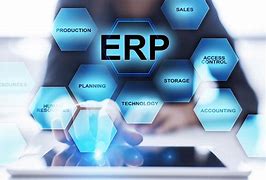erp ecommerce blog.kristenly.com
Table of Contents
erp ecommerce blog.kristenly.com Enterprise Resource Planning (ERP) systems have revolutionized the way businesses operate, and their integration with e-commerce platforms has opened new avenues for efficiency and growth. This article explores the intricate world of ERP in e-commerce, offering a deep dive into its benefits, challenges, and future prospects.
The Evolution of ERP Systems erp ecommerce blog.kristenly.com
ERP systems have evolved significantly since their inception. Initially designed for manufacturing and inventory management, these systems now encompass a wide range of business processes, including finance, human resources, and customer relationship management.
Historical Context
The journey of ERP began in the 1960s with Material Requirements Planning (MRP) systems. Over the decades, ERP systems have incorporated advanced technologies, transforming into comprehensive solutions that cater to various industries . erp ecommerce blog.kristenly.com
Types of ERP Systems
ERP systems come in different forms, each tailored to meet specific business needs.
On-Premise ERP
On-premise ERP solutions are installed locally on a company’s servers and managed by its IT staff. These systems offer high customization and control but require significant investment in hardware and maintenance.
Cloud-Based ERP
Cloud-based ERP systems are hosted on the vendor’s servers and accessed via the internet. They offer flexibility, scalability, and reduced upfront costs, making them ideal for small and medium-sized enterprises (SMEs). erp ecommerce blog.kristenly.com
Hybrid ERP
Hybrid ERP systems combine on-premise and cloud-based solutions, offering the benefits of both. This approach allows businesses to maintain control over critical processes while leveraging the flexibility of the cloud for other operations.
Key Features of ERP Systems in E-commerce

ERP systems integrated with e-commerce platforms offer a plethora of features designed to streamline operations and enhance customer experiences. erp ecommerce blog.kristenly.com
Inventory Management
Automated inventory management ensures real-time tracking of stock levels, reducing the risk of overstocking or stockouts. erp ecommerce blog.kristenly.com
Order Processing
Efficient order processing systems help manage orders from multiple sales channels, ensuring timely fulfillment and delivery. erp ecommerce blog.kristenly.com
Customer Relationship Management (CRM)
Integrated CRM functionalities enable businesses to manage customer interactions, improve service, and enhance loyalty. erp ecommerce blog.kristenly.com
Financial Management
Comprehensive financial management tools facilitate accurate accounting, budgeting, and financial reporting.
Analytics and Reporting
Advanced analytics and reporting tools provide valuable insights into sales trends, customer behavior, and overall business performance.
Benefits of ERP in E-commerce
Integrating ERP systems with e-commerce platforms offers numerous advantages that can drive business growth and efficiency.
Improved Efficiency
Automation of repetitive tasks reduces manual effort, allowing employees to focus on strategic activities.
Enhanced Data Accuracy
Centralized data management ensures accuracy and consistency across all business processes.
Better Customer Experience
Seamless integration with CRM systems enables personalized customer interactions and faster response times.
Cost Savings
By streamlining operations, businesses can reduce operational costs and improve profitability.
Challenges of ERP Implementation
Despite its benefits, implementing an ERP system can be challenging.
High Initial Investment
The cost of ERP software, along with implementation and training, can be substantial.
Complexity
ERP systems can be complex, requiring significant time and resources for successful deployment and maintenance.
Resistance to Change
Employees may resist changes in processes and workflows, necessitating effective change management strategies.
ERP Implementation Strategies
Successful ERP implementation requires careful planning and execution.
Needs Assessment
Conduct a thorough needs assessment to identify the specific requirements of your business.
Vendor Selection
Choose a vendor that offers the features and support necessary for your business.
Customization
Customize the ERP system to align with your unique business processes.
Training
Provide comprehensive training to ensure employees are comfortable using the new system.
Case Studies
Real-world examples highlight the transformative impact of ERP systems in e-commerce.
Case Study 1: XYZ Retailer
XYZ Retailer integrated an ERP system with its e-commerce platform, resulting in a 30% increase in operational efficiency and a 20% reduction in costs.
Case Study 2: ABC Manufacturer
ABC Manufacturer streamlined its supply chain and improved inventory management through ERP integration, enhancing its customer satisfaction and loyalty.
Expert Insights
Industry experts provide valuable insights into the best practices and future trends in ERP for e-commerce.
Dr. Jane Smith, ERP Consultant
“Integrating ERP with e-commerce is no longer a luxury but a necessity for businesses aiming to stay competitive in today’s market.”
John Doe, E-commerce Specialist
“The future of ERP in e-commerce lies in AI and machine learning, which will drive even greater efficiency and personalization.”
Conclusion
ERP systems have become indispensable for e-commerce businesses, offering a wide range of benefits from improved efficiency to enhanced customer experiences. As technology continues to evolve, the integration of advanced features such as AI and machine learning will further revolutionize the landscape. For businesses looking to stay ahead, investing in a robust ERP system is crucial.
Read Also: The Ultimate Guide to Planning a Memorable Party with Yacht Rentals
